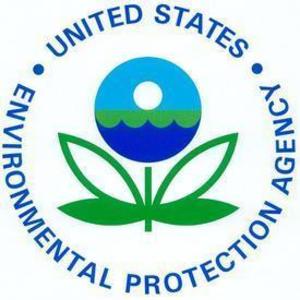EPA announces enforcement discretion policy for COVID-19 pandemic




March 27, 2020
BY U.S. EPA
The U.S. EPA is mindful of the health and safety of the public, as well as our staff, and those of federal agencies, state and local governments, tribes, regulated entities, contractors, and non-governmental organizations during the COVID-19 pandemic. The agency is taking these important considerations into account as we all continue our work to protect human health and the environment. Accordingly, EPA is announcing a temporary policy regarding EPA enforcement of environmental legal obligations during the COVID-19 pandemic.
EPA's temporary enforcement discretion policy applies to civil violations during the COVID-19 outbreak. The policy addresses different categories of noncompliance differently. For example, under the policy EPA does not expect to seek penalties for noncompliance with routine monitoring and reporting obligations that are the result of the COVID-19 pandemic but does expect operators of public water systems to continue to ensure the safety of our drinking water supplies. The policy also describes the steps that regulated facilities should take to qualify for enforcement discretion.
"EPA is committed to protecting human health and the environment, but recognizes challenges resulting from efforts to protect workers and the public from COVID-19 may directly impact the ability of regulated facilities to meet all federal regulatory requirements," said EPA Administrator Andrew Wheeler. "This temporary policy is designed to provide enforcement discretion under the current, extraordinary conditions, while ensuring facility operations continue to protect human health and the environment."
The temporary policy makes it clear that EPA expects regulated facilities to comply with regulatory requirements, where reasonably practicable, and to return to compliance as quickly as possible. To be eligible for enforcement discretion, the policy also requires facilities to document decisions made to prevent or mitigate noncompliance and demonstrate how the noncompliance was caused by the COVID-19 pandemic.
Advertisement
This policy does not provide leniency for intentional criminal violations of law.
The policy does not apply to activities that are carried out under Superfund and RCRA Corrective Action enforcement instruments. EPA will address these matters in separate communications.
EPA's policy will apply retroactively beginning on March 13, 2020. EPA will assess the continued need for and scope of this temporary policy on a regular basis and will update it if EPA determines modifications are necessary.
In order to provide fair and sufficient notice to the public, EPA will post a notification here at least 7 days prior to terminating this temporary policy.
Advertisement
To read the EPA Policy on Enforcement during the COVID-19 outbreak: https://www.epa.gov/enforcement/enforcement-policy-guidance-publications
Members of the public can help protect our environment by identifying and reporting environmental violations. Learn more here: https://www.epa.gov/enforcement/report-environmental-violation-general-information.
Contact Us to ask a question, provide feedback, or report a problem.
Related Stories
The U.S. Department of Energy Bioenergy Technologies Office (BETO) announced up to $23 million in funding to support research and development (R&D) of domestic chemicals and fuels from biomass and waste resources.
The U.S. DOE has announced its intent to issue funding to support high-impact research and development (R&D) projects in two priority areas: sustainable propane and renewable chemicals and algal system cultivation and preprocessing.
Sens. Sherrod Brown, D-Ohio, and Pete Ricketts, R-Neb., in August introduced the Renewable Chemicals Act, a bill that aims to create a tax credit to support the production of biobased chemicals.
The Chemical Catalysis for Bioenergy Consortium, a consortium of the U.S. DOE’s Bioenergy Technologies Office, has launched an effort that aims to gather community input on the development of new biomass processing facilities.
USDA on March 8 celebrated the second annual National Biobased Products Day, a celebration to raise public awareness of biobased products, their benefits and their contributions to the U.S. economy and rural communities.
Upcoming Events










